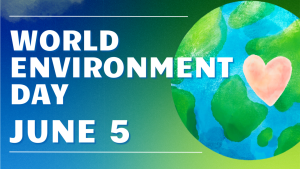 Every year, the Earth yields billions of tons of
Every year, the Earth yields billions of tons of  natural resources and at some point, in the not too distant future, it will run out.
natural resources and at some point, in the not too distant future, it will run out.
That’s why we must think again about what we throw away – seeing not waste, but opportunity.
The last decade has been the hottest on record, and we are now facing a climate emergency of unparalleled proportions. If we don’t make significant and rapid changes, we will see continued rising global temperatures, the melting of icecaps, continents on fire and rapid deforestation.
This directly affects humanity with increased poverty, immigration from displaced communities, job losses, waste mountains and natural habitats disappearing. We have the power to make lasting changes to combat this, and with recycling being recognized in the UN’s Sustainable Development Goals 2030, we are already seeing many individuals, governments and organisations taking direct action to support the global green agenda.
Recycling is a key part of the circular economy, helping to protect our natural resources. Each year the ‘Seventh Resource’ (recyclables) saves over 700 million tonnes in CO2 emissions and this is projected to increase to 1 billion tons by 2030. There is no doubt recycling is on the front line in the war to save the future of our planet and humanity.
The Global Recycling Foundation is pleased to announce the theme of Global Recycling Day 2024 as #RecyclingHeroes. This will recognise the people, places and activities that showcase what an important role recycling plays in contributing to an environmentally stable planet and a greener future which will benefit all.
Global Recycling Day was created in 2018 to help recognise, and celebrate, the importance recycling plays in preserving our precious primary resources and securing the future of our planet. It is a day for the world to come together and put the planet first.
The mission of Global Recycling Day, as set out by the Global Recycling Foundation, is twofold:
1. To tell world leaders that recycling is simply too important not to be a global issue, and that a common, joined up approach to recycling is urgently needed.
2. To ask people across the planet to think resource, not waste, when it comes to the goods around us – until this happens, we simply won’t award recycled goods the true value and repurpose they deserve.
Source: text & Images: https://www.globalrecyclingday.com/
 Solutions to plastic pollution
Solutions to plastic pollution
 GLOBAL RECYCLING DAY
GLOBAL RECYCLING DAY